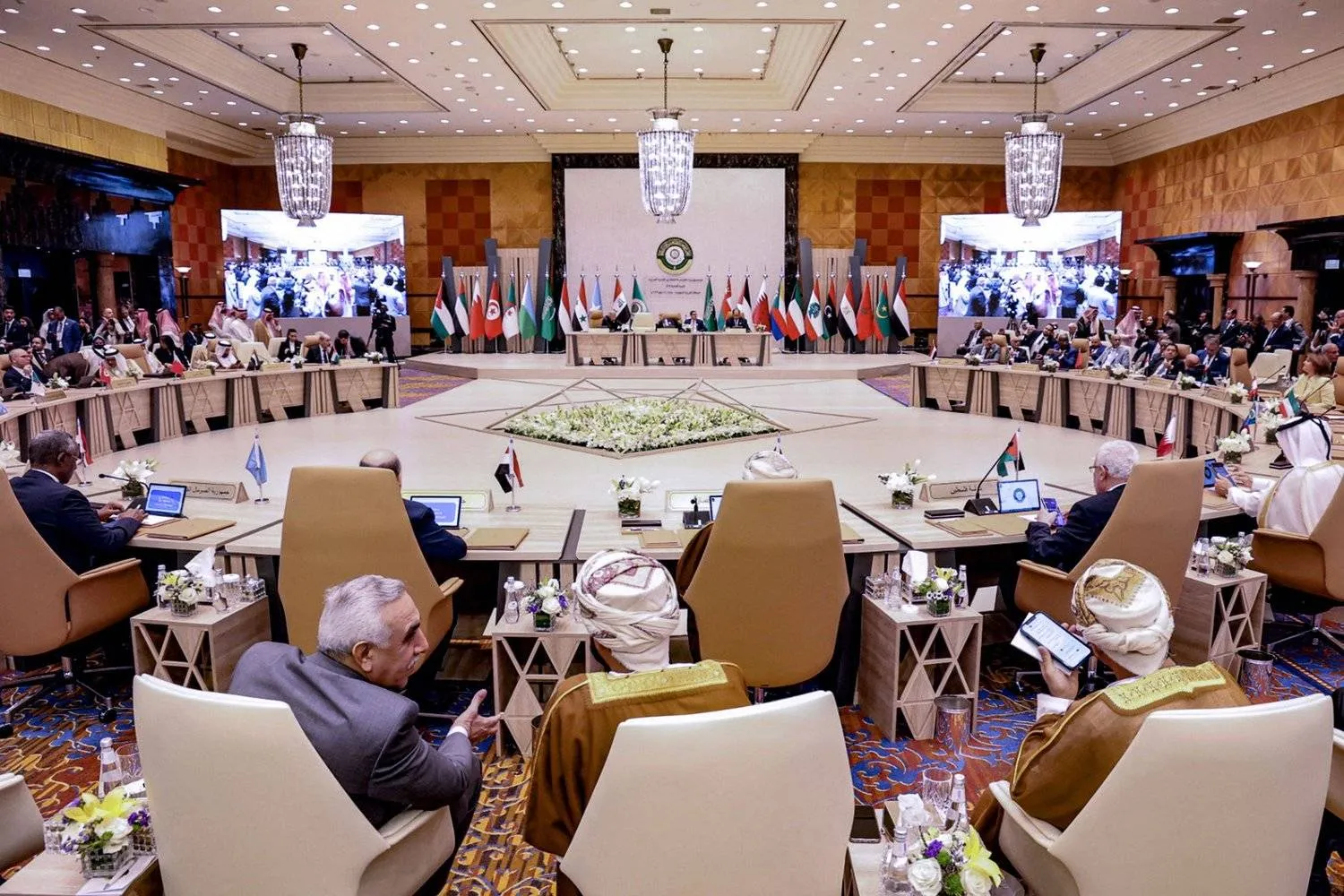Asharq Al-Awsat received the draft of the closing statement of the 32nd Arab League summit that kicked off in Jeddah on Friday.
The statement tackled over 30 issues of concern in the Arab League, starting with the Palestinian-Israeli conflict, crisis in Syria, situation in Lebanon and Iran’s meddling in the region. The leaders also tackled issues related to the environment, cyber-security and economy.
The Arab League underlined the centrality of the Palestinian cause in the Arab world. It underscored the Arab identity of East Jerusalem, the capital of an independent Palestinian state.
It stressed the right to the establishment of a sovereign Palestinian state according to the 1967 borders and the need to activate the 2002 Arab Peace Initiative.
On Lebanon, the Arab leaders urged the local authorities to continue their efforts to elect a president and form a government as soon as possible. They must implement economic reforms to help the country out of its crippling crisis.
The Arab leaders hailed Lebanon's efforts - in spite of its crippling crises - in hosting Syrian refugees.
They voiced their support for Lebanon's calls to intensify efforts to ensure the safe return of the refugees back to their country where the conditions have become more secure.
On Syria, the draft statement renewed the Arab commitment to the war-torn country’s sovereignty, stability and territorial integrity. The leaders called for intensifying efforts to help Syria end its crisis and end the suffering of its people.
The gatherers welcomed the reinstatement of Syria's membership in the Arab League in line with its May 7 announcement.
They stressed the importance of bolstering joint Arab work to tackle the impact of the refugee crisis, terrorism and drug smuggling.
Effective steps must be taken to resolve the crisis to preserve Syria's unity and sovereignty and meet the aspirations of its people and rid it of terrorism. The safe conditions for the voluntary return of the refugees must be put in place.
Turning to Sudan, they declared full solidarity with it in preserving its sovereignty and independence. They rejected foreign interference in its internal affairs, saying its crisis was an internal issue.
They welcomed the Jeddah humanitarian declaration that was announced on May 11 and signed by the Sudanese army and Rapid Support Forces. The rival Sudanese parties had agreed to renew their commitment to international humanitarian law.
On Libya, the draft statement stressed support to its sovereignty and territorial integrity, rejecting foreign meddling in its affairs.
Addressing Yemen, the statement expressed Arab commitment to the country’s unity and sovereignty. It emphasized support to the legitimate Yemeni government led by Chairman of the Presidential Leadership Council Dr. Rashad al-Alimi.
They underlined continued support to the council in carrying out its duties in achieving security and stability in Yemen, ending its crisis and suffering of its people, restoring the state and achieving comprehensive and sustainable peace in the country.
The gatherers welcomed the China-mediated agreement between Saudi Arabia and Iran to reestablish relations.
They condemned Türkiye after its forces infiltrated Iraqi territories, calling for their unconditional withdrawal.
Turning to the fight against terrorism, the statement condemned all forms of criminal operations carried out by terrorist organizations in Arab countries and the world.









